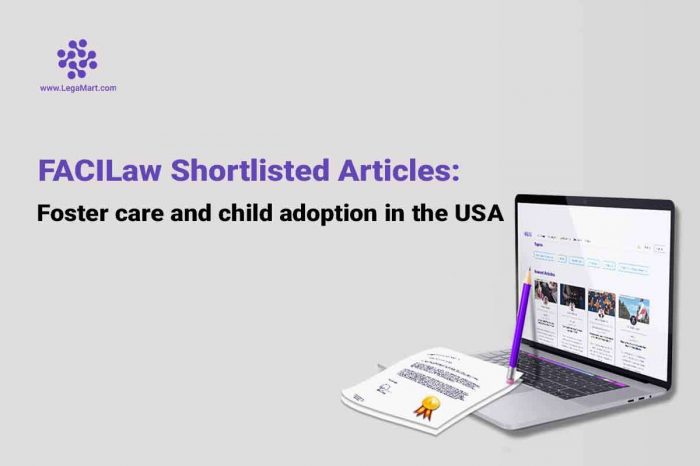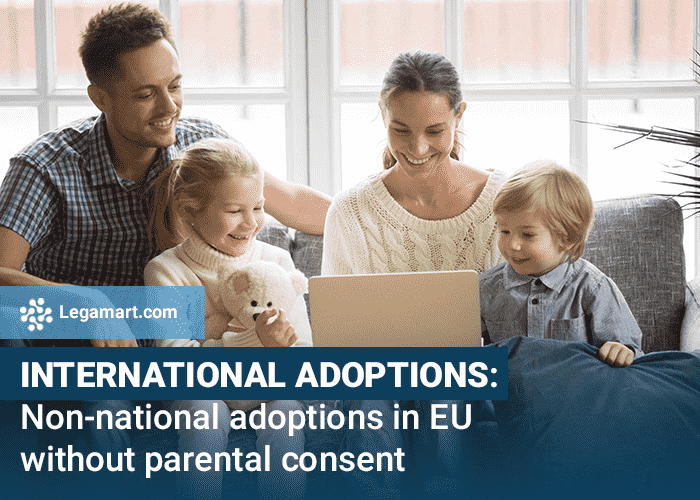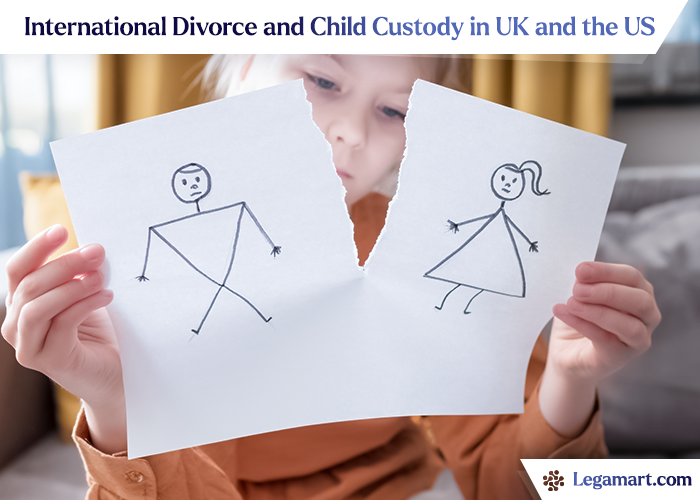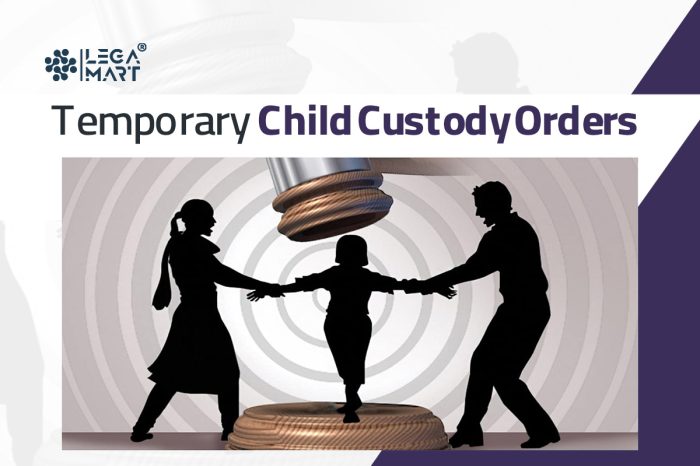Family Law
Child Custody
Child custody issues can be among the most acrimonious and challenging to resolve in the courtroom. When child custody disputes are handled in a global setting, they can get even hotter and more passionate. It can be challenging to decide which country has jurisdiction over an international custody dispute and which laws should be used, even though child custody disputes in certain nations are governed mainly by state and federal law.
-
Choosing which country’s laws should be obeyed
-
What to do if a child is unjustly taken to another nation
-
Sending a child to live in another nation
Choosing which country’s laws should be obeyed
A child’s native state typically has jurisdiction over custody disputes in some nations, but other nations are not compelled to follow the rules of other nations.
Furthermore, a foreign court may decide to ignore any custody decree that has already been issued in another nation. It might be challenging to decide which country should have jurisdiction over a lawsuit to determine custody of a child if the child regularly lives with both parents and the parents do not reside in the same country. The parent wishing to transfer the case will probably need to file an action in the original court if a parent in one nation has already filed a child custody case and the other parent disagrees that it should be heard there. Any attempt to transfer a child custody case will be successful or unsuccessful, purely relying on the country’s legislation and the court ruling, which will vary widely depending on which country is involved.
What to do if a child is unjustly taken to another nation
A convention known as the Hague Convention may help a parent get their child back if they believe they have been wrongfully abducted and taken to another nation. The Hague Convention only applies to nations that have ratified the agreement, which limits its usefulness. It’s also crucial to remember that the Hague Convention does not permit the change of custody arrangements; rather, it simply states that any child kidnapped and taken to a foreign nation should be returned there. The parent must petition the court to invoke the Hague Convention to benefit from it. A hearing will be convened if the nation from where the kid was abducted is a signatory to the treaty. If the court decides after the hearing that the kid was wrongfully removed from the nation where the petition was filed, and the child was a citizen of that nation, the child must be sent back within six weeks. Although “habitual resident” is not defined, courts typically consider several variables, such as the child’s past residences and the parents’ intents. The Hague Convention provides limited defences to allegations that a child was wrongfully taken from their parents. There are several defences, such as the claims that the other parent approved of the removal, that more than a year has passed since the removal, that the child is old enough to make a mature decision and objects to going back to his or her country of origin, or that the child was in danger of harm.
Sending a child to live in another nation
In some situations, both parents will live in the same nation, but one will try to move abroad with the child owing to a change in circumstances. The Hague Convention’s signatory status, whether the foreign jurisdiction will uphold any existing custody orders, and how the relocation will affect the child’s current custody are all things the court will consider when deciding whether to approve a parent’s request to relocate a child to a foreign country. As in any custody dispute, the kid’s best interests must come first when deciding whether to permit one parent to take the child abroad.
Find Best Lawyers and Legal help in
Latest Articles
Opuere Odu
- September 2, 2022
Tell us more about your problem.
Please give a brief description about what it is you need to talk to our lawyers about ?
Frequently Asked Questions
What factors do courts consider when making child custody decisions?
When making child custody decisions, courts consider a variety of factors, including:
The child’s best interests: This is the primary consideration in any child custody case. The court will take into account what is in the child’s best interests, including their emotional and physical needs, safety, and well-being.
The child’s age and gender: The court may consider the child’s age and gender when making custody decisions. For example, young children may need more frequent contact with both parents to maintain strong relationships.
The relationship between the child and each parent: The court will consider the quality of the relationship between the child and each parent, including their ability to provide for the child’s needs, their involvement in the child’s life, and any history of abuse or neglect.
Each parent’s ability to care for the child: The court may consider each parent’s ability to provide for the child’s basic needs, such as food, clothing, and shelter, as well as their ability to provide emotional support and guidance.
Each parent’s living situation: The court may consider each parent’s living situation, including the stability of their home environment, the presence of other family members, and any history of substance abuse or domestic violence.
The preferences of the child: Depending on the child’s age and maturity level, the court may consider their preferences when making custody decisions.
Any other relevant factors: The court may also consider any other relevant factors that could impact the child’s well-being, such as the proximity of each parent’s home to the child’s school or medical providers.
Can an expat or an immigrant parent be granted custody of their child?
Yes, an expat or an immigrant parent can be granted custody of their child. Custody decisions are made based on the best interests of the child, regardless of the parent’s nationality or immigration status. However, in some cases, immigration status may be taken into consideration by the court when determining a parent’s ability to care for the child. For example, if a parent is in the country illegally and faces deportation, this could impact their ability to provide a stable home environment for the child. Ultimately, the court will consider all relevant factors when making custody decisions, with the goal of ensuring that the child’s best interests are served.
How does the court determine the best interests of the child in custody cases?
When determining the best interests of the child in custody cases, the court will consider a variety of factors. The specific factors that are considered may vary depending on the jurisdiction and the circumstances of the case, but some common considerations include:
The child’s physical, emotional, and developmental needs: The court will consider the child’s age, health, educational needs, and any special needs or medical conditions.
Each parent’s ability to provide for the child’s needs: The court will evaluate each parent’s ability to provide a stable home environment, including their financial resources, living arrangements, and ability to care for the child’s daily needs.
The quality of the relationship between the child and each parent: The court will consider the history of the child’s relationship with each parent, including the level of involvement of each parent in the child’s life, the nature of their interactions with the child, and any instances of abuse, neglect, or domestic violence.
The mental and physical health of each parent: The court will evaluate each parent’s physical and mental health, including any history of substance abuse or mental illness.
The child’s ties to their community, school, and other important relationships: The court may consider the child’s relationships with siblings, grandparents, friends, teachers, and other important individuals, as well as their involvement in extracurricular activities and support networks.
The child’s preferences, if they are of sufficient age and maturity: In some cases, the court may take into account the child’s wishes, particularly if they are mature enough to express a reasoned preference.
Any other relevant factors: Depending on the specific circumstances of the case, the court may consider other factors that could impact the child’s well-being, such as the distance between the parents’ homes or any cultural or religious considerations.
Ultimately, the court will weigh all of these factors and make a custody decision that is in the best interests of the child.
Can a non-custodial parent petition for custody modification?
Yes, a non-custodial parent can petition for custody modification. In most jurisdictions, either parent can seek a change in custody or visitation arrangements if there has been a significant change in circumstances since the original custody order was issued. This may include changes in the child’s needs or living situation, the parent’s ability to provide care, and other relevant factors. However, the specific requirements and procedures for modifying custody orders vary by state, so it is important to consult with an attorney or legal professional in your jurisdiction for guidance on the process.
What is joint custody and how is it awarded?
Joint custody is a legal arrangement in which both parents share the responsibility for making important decisions regarding their child’s upbringing and well-being, such as those related to education, healthcare, and religion. In addition to decision-making responsibilities, joint custody may also involve sharing physical custody of the child, with each parent having substantial periods of parenting time.
Joint custody may be awarded in situations where both parents are able to work together effectively and put the needs of their child first, even if they are no longer in a romantic relationship. However, courts will only award joint custody if it is determined to be in the best interests of the child. Factors that may be considered in making this determination include:
The child’s age, health, and emotional needs
Each parent’s ability to provide for the child’s physical, emotional, and developmental needs
The child’s relationship with each parent and other family members
The distance between the parents’ homes and how it may impact the child’s routine and lifestyle
Each parent’s willingness and ability to cooperate and communicate with the other parent regarding the child’s welfare
Ultimately, the specific requirements and procedures for awarding joint custody vary by state and jurisdiction,
What rights do grandparents have in child custody cases?
The rights of grandparents in child custody cases vary depending on the laws of the jurisdiction in which they reside. In some states, grandparents may have legal standing to petition for custody or visitation rights under certain circumstances, such as when a parent is deceased, absent, or deemed unfit by the court.
However, in other states, grandparents may not have any legal rights to seek custody or visitation unless they can demonstrate that their relationship with the child is substantial and that denying them access would be harmful to the child’s welfare.
Courts generally make decisions regarding grandparent visitation or custody based on what is in the best interests of the child. Factors that may be considered include the nature and quality of the relationship between the grandparent and child, the grandparent’s ability and willingness to provide for the child’s needs, and the potential impact of grandparent visitation or custody on the child’s mental, physical, and emotional health.
It is important to consult with an attorney or legal professional in your jurisdiction to understand the specific laws and procedures related to grandparent rights in your area.















